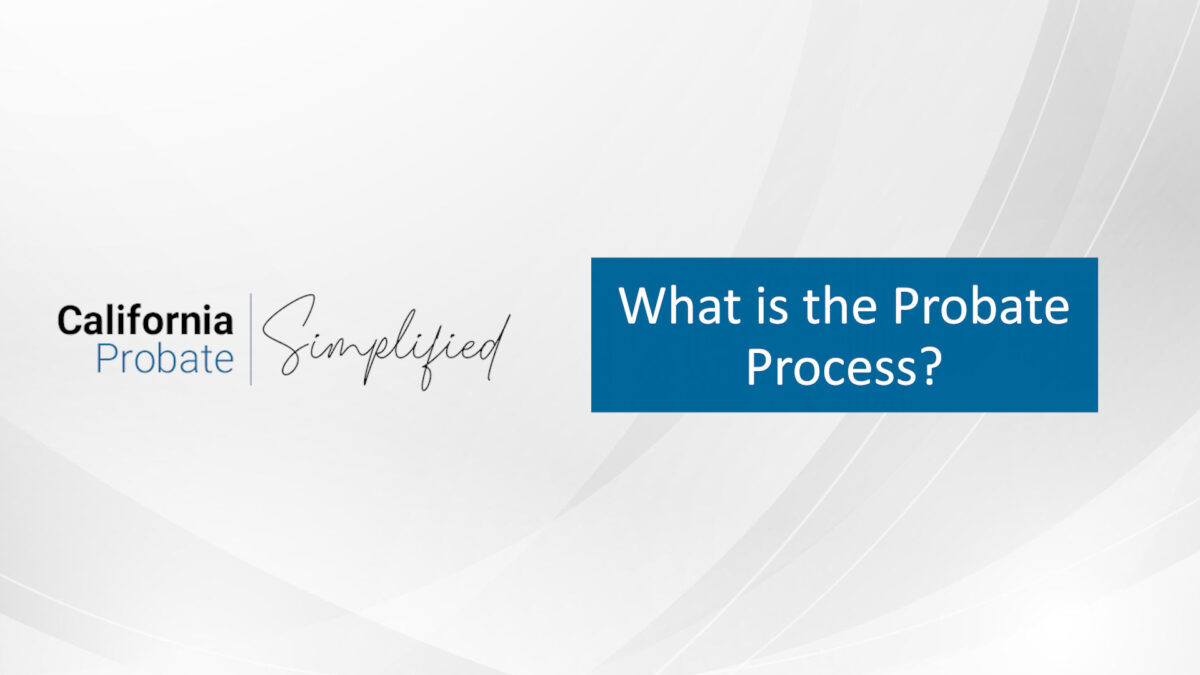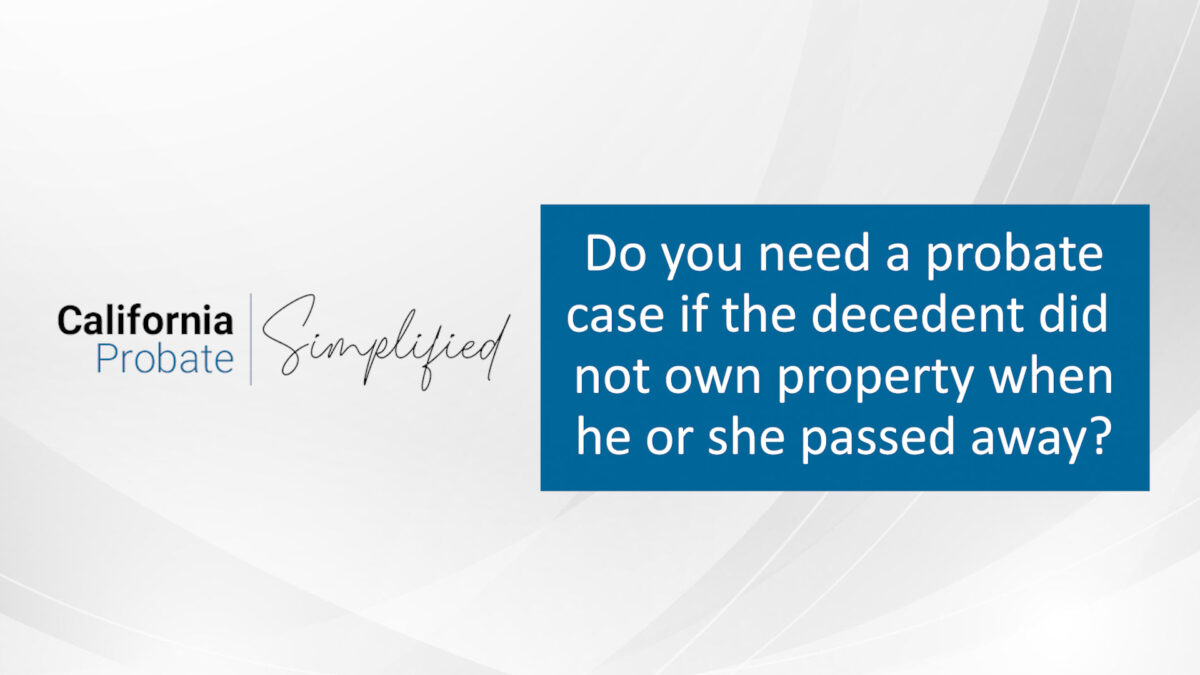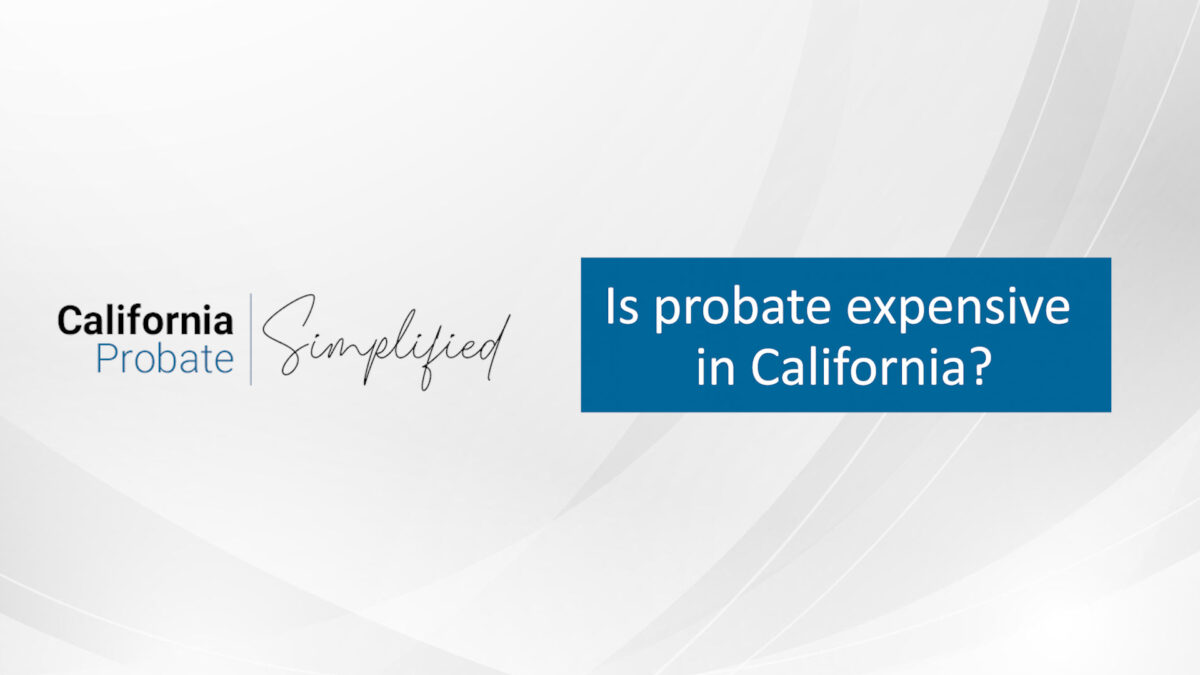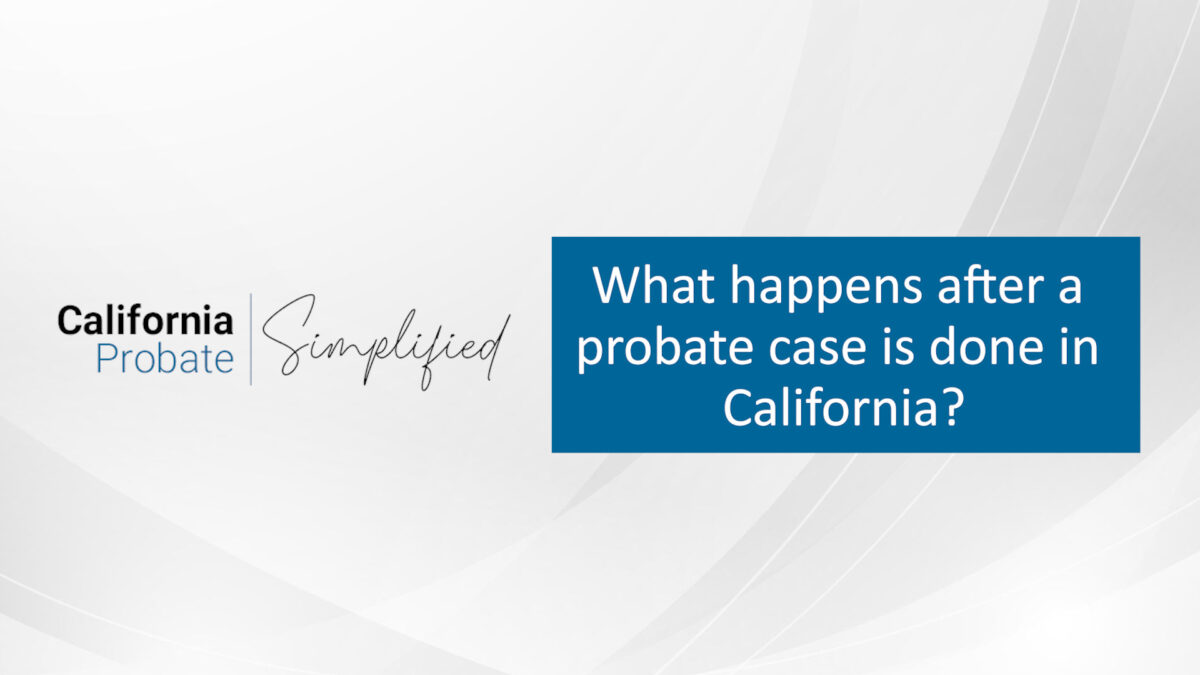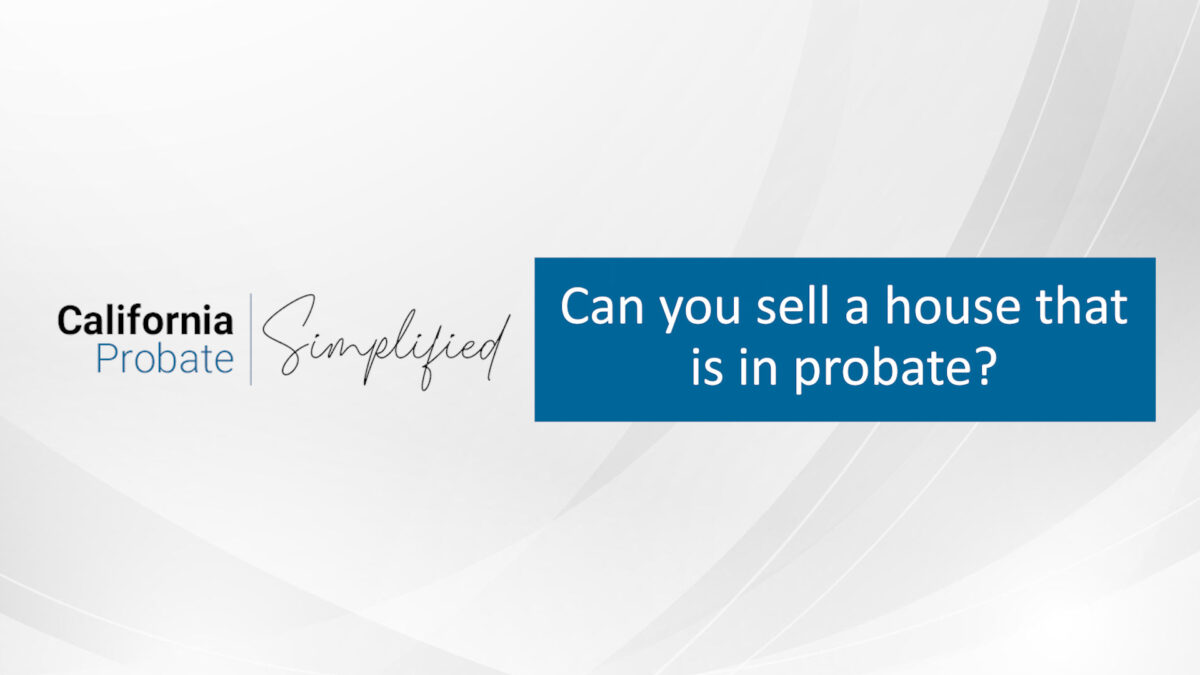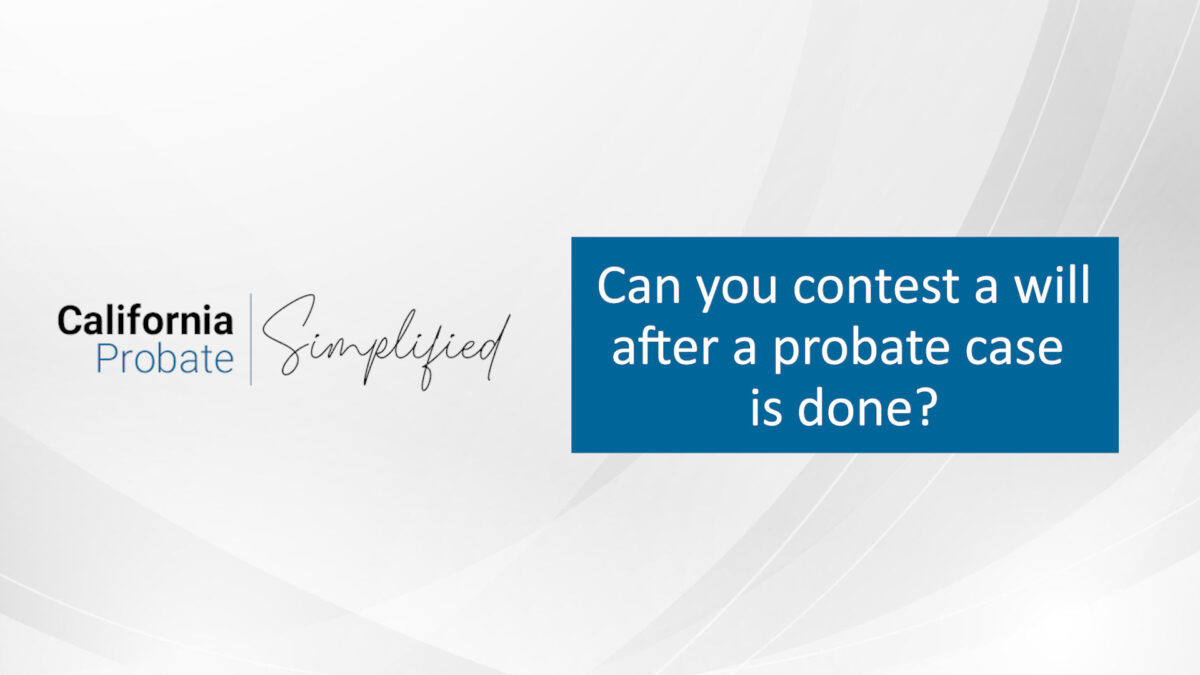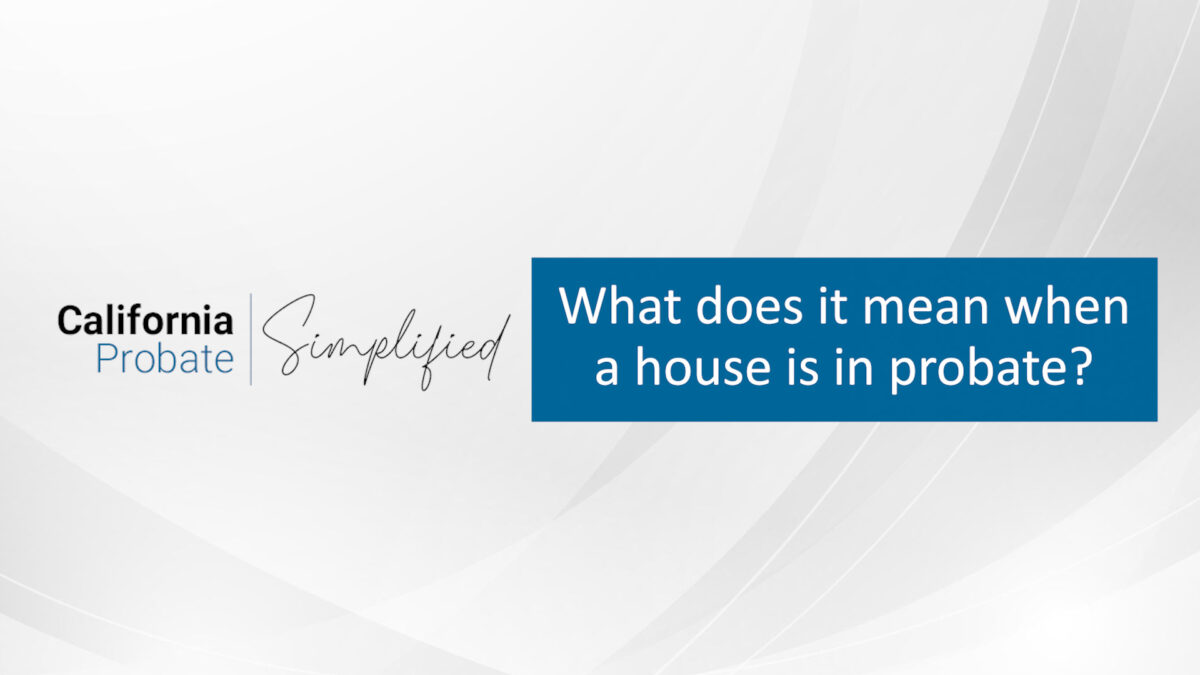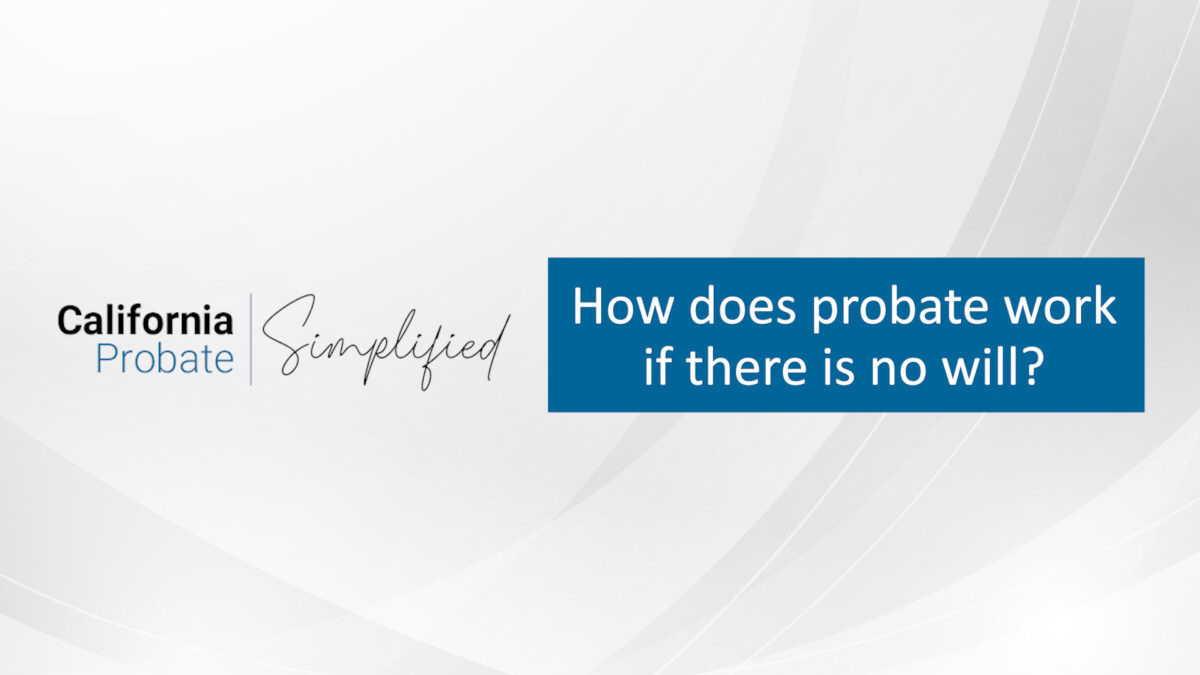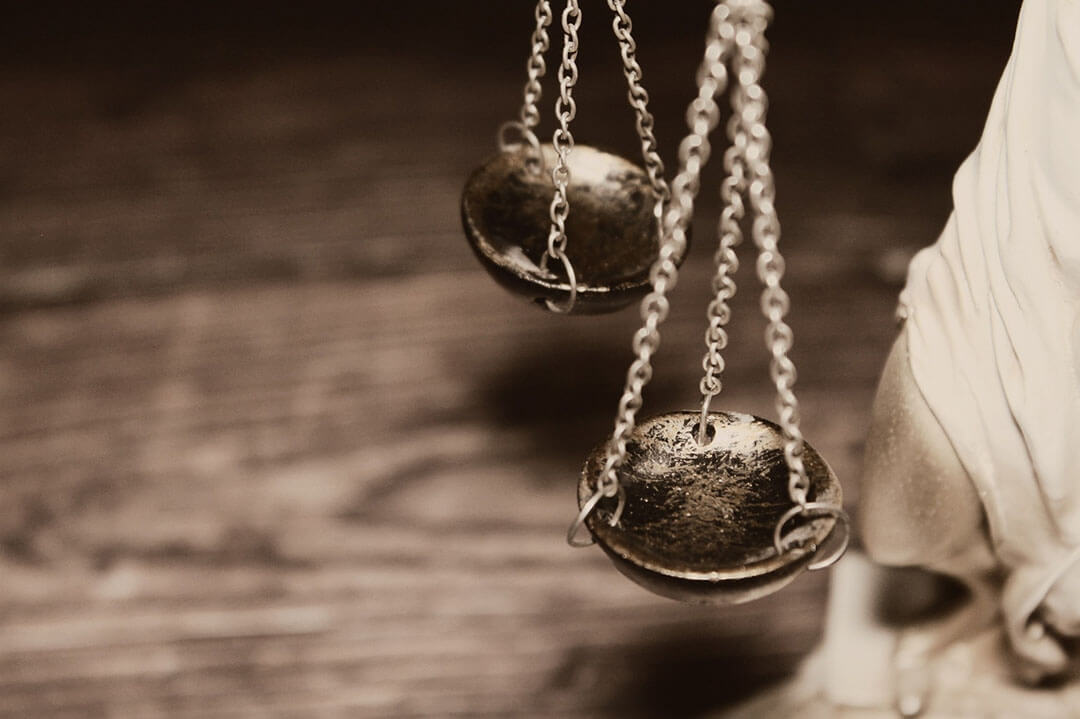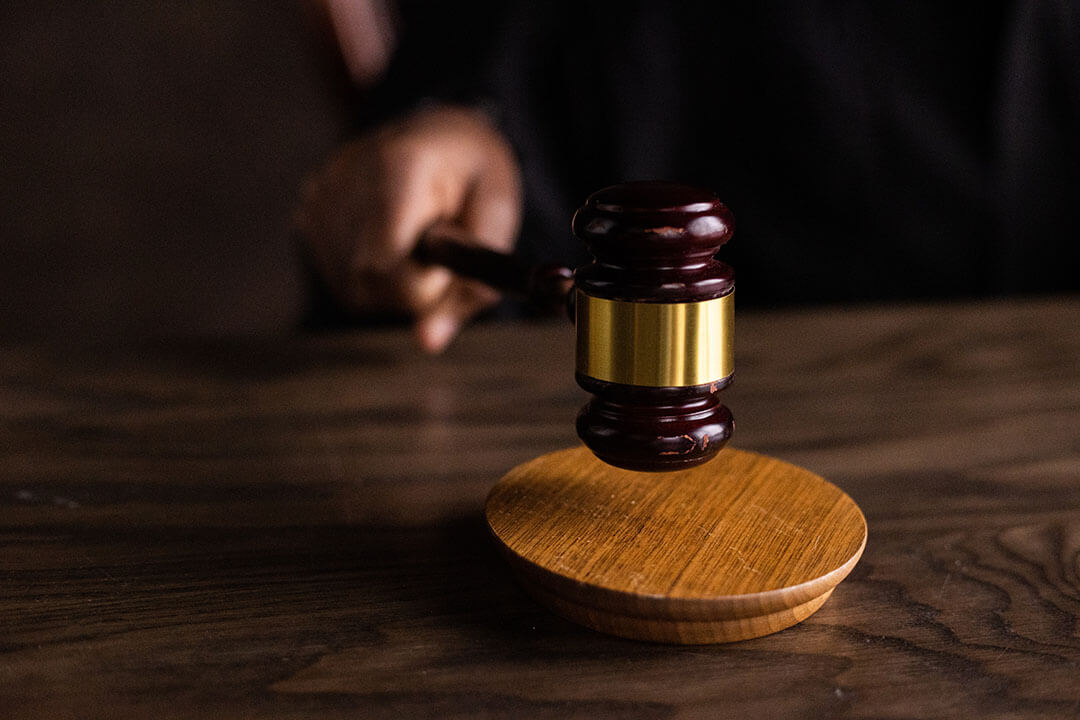Do you need a probate case if the decedent did not own property when he or she passed away?
John Rei Bernardo
on
June 26, 2023
The answer in most cases is no. The purpose of probate is to make sure that property gets to the correct people after a decedent has passed away. If the decedent did not have property in his or her name when they died, or if the property was held jointly with another person such that it passed to that other person automatically. In those circumstances, there is no need for a probate case.
Is probate expensive in California?
John Rei Bernardo
on
June 12, 2023
And the short answer is yes, it is expensive in most cases relative to doing other types of estate planning that might help you avoid probate. The fees that are charged in probate are first, the executor is entitled to be paid for his or her service of being the executor of the probate estate. The reason for that is being the executor is a lot of work. The fee that the executor is able to be paid is a percentage of the gross estate value. What that means is it’s the fair market value of all of the probate assets on the date of death of the decedent without subtracting any of the debts.
And so if someone owned, for example, a million dollar house but it had an $800,000 mortgage, the probate fee would be based on the million dollar fair market value of the house. Now, the percentage is a stair step down percentage. So it starts at 4% and it decreases as the value of the assets increase and it’s a percentage that is based upon each level or each value of assets. And so for example, it’s 4% for the first 100 thousand, 3% for the next 100 thousand, 2% of the 200 thousand to a million, and so on. For a million dollar estate, the probate fee is 2.3%.
Now, the second cost of probate comes from attorneys fees. The probate law says that an executor can hire an attorney to help him or her and the attorney is paid in the same way as the executor is, as a percentage of the gross estate value. And the percentages are the same. So for example, with a million dollar estate the executor would receive 2.3% or $23,000 and then the attorney would also receive 2.3% or $23,000 on a million dollar estate. And so this is significant amount of money and cost to have someone’s estate go through probate.
What happens after a probate case is done in California?
John Rei Bernardo
on
June 12, 2023
One question I receive is what happens aftera probate case is done in California? Well, to get to the point of a case being done, that means that the executor will have had to file an accounting with the court listing all of the assets that the decedent owned on the date of his or her death and the value of those assets.
Now, usually when that is done, the executor will also ask for a court order authorizing the executor to distribute those assets to the beneficiaries.
Once the judge or the court signs that order, the executor is permitted to distribute assets to the beneficiaries. Once that’s done, the probate case is resolved and there is no further action. In most cases, that is required by the executor.
Can you sell a house that is in probate?
John Rei Bernardo
on
June 12, 2023
And the answer is yes. But you need to get the court’s approval in most cases before you do so. Having a house in probate means that the house is one of the assets of the decedent, the person who recently passed away, and the house is now part of the probate case and under the jurisdiction of the court.
Generally, the executor is the person who is responsible for making sure that assets are first marshalled or determined to be the assets of the decedent, and then the assets ultimately are distributed after the court says it is okay to do so. So you can sell a house that is in probate as the executor. You just need to get the judge’s authority to do so first most of the time.
Can you contest a will after the probate case is done?
John Rei Bernardo
on
June 12, 2023
One question that I receive is can you contest a will after the probate case is done? And the short answer in most instances is no, you cannot contest a will after the probate case is done. The probate case will put the will at issue. And so if you are interested in contesting the will, you need to do that within the context of the probate case.
Now, the grounds for contesting the will generally have to do with either the will is not valid for some technical reason. The will is not valid because it wasn’t signed by the decedent, the person who passed away, or the will was signed, but the person who signed it was unduly influenced by another person.
So those generally are the grounds for contesting the will. And once the will is admitted into probate, that is the time for someone to raise one of these challenges as to the validity of the will.
What does it mean when a house is in probate?
John Rei Bernardo
on
June 12, 2023
Well, if a house is in probate, what that means is that it is one of the assets that was owned by the decedent, the person who passed away upon his or her death. And a probate case was started and the house was listed as one of the assets of the probate estate.
And so what that means is that the court has authority and oversight of the house and generally the executor has to get the court’s approval before the house can be sold.
In other words, the house is part of a court case and the judge ultimately will decide whether the house can be sold or not.
How does probate work if there is no will?
John Rei Bernardo
on
June 12, 2023
Now, probate if there is a will and probate if there is not a will are very similar to each other. It starts when someone files a petition with the court.
If a will exists, they have to attach a copy of the will and ask the court to admit the will into probate. If there is no will, then that person is said to have died intestate, which means dying without a will. When that happens, the property is ultimately distributed by the court to the people who are listed in the probate code. That is usually a surviving spouse, if there is one, surviving kids.
If there are no surviving spouse or surviving children, then it generally goes up the family tree to the parents and then out the branches to the siblings. So if there is no will, probate works very similar in California to the situation if there was a will.
It involves a court process with the court having oversight to make sure that property gets distributed to the correct people.
3 Reasons to Avoid Probate
John Rei Bernardo
on
June 12, 2023
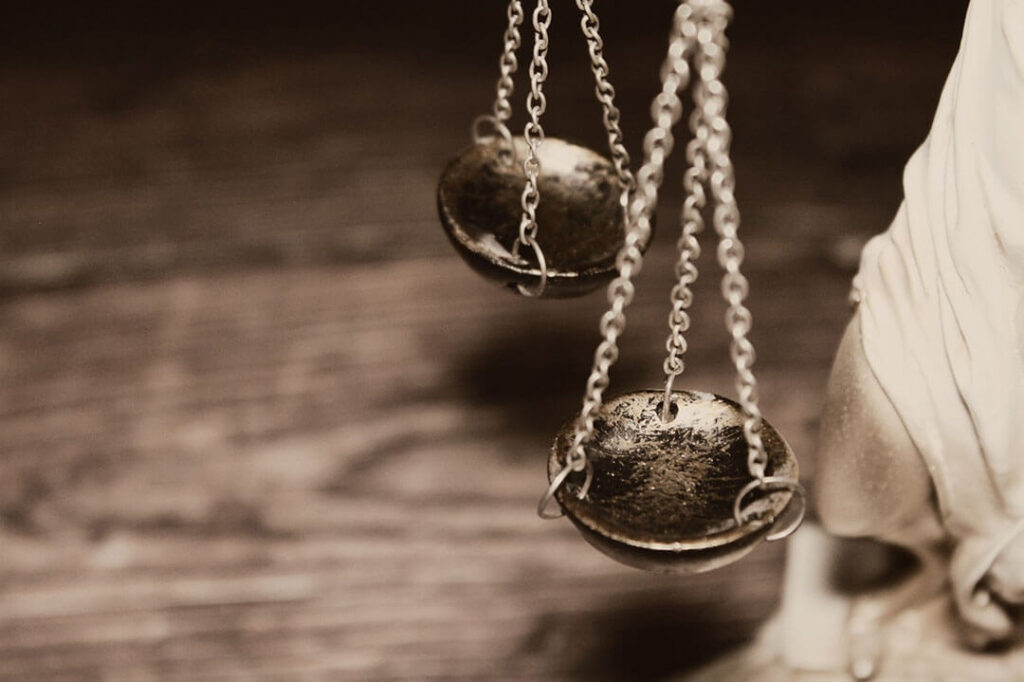
In order to receive their inheritance after your passing, your relatives may need to sign specific paperwork as part of the probate process. This is possible if you possess property (such as a house, car, bank account, investment account, or other asset) in your name alone and have not designated a beneficiary, pay-on-death, or transfer-on-death. Although a will is a fundamental form of planning, it does not prevent probate. In contrast, a will merely informs the probate court of your preferences; your loved ones must still go through the probate process to make those wishes legal.
Now that you understand why probate may be essential, consider the following three reasons for avoiding probate whenever possible:
1. Everything is public record.
Almost every court proceeding, including probate, becomes a matter of public record. This implies that in order to properly wind up your affairs (i.e., pay your bills, submit any remaining tax returns, and distribute your money and property to your selected beneficiaries), your paperwork, including family and financial information, may become available to anybody through the probate court.
The courts have at least taken efforts to lessen the risk of identity theft, so this does not necessarily imply that account numbers and Social Security numbers will be made public. The amount of your accounts and property, creditor claims, the identity of your beneficiaries, contact information for your loved ones, and even family disputes that affect the distribution of your money and property may be made public.
The easiest method to ensure secrecy is to keep your affairs out of probate, as most individuals want to keep this type of information private.
2. It can be costly.
Due to court charges, attorney’s fees, executor fees, and other expenses, the cost of probate can rapidly approach thousands of dollars, even for small or straightforward cases. If family conflicts or creditor claims occur throughout the procedure, these costs can quickly escalate into the tens of thousands or more. Your money and property should go to your loved ones, but if your estate goes through probate, a considerable percentage may be allocated to the courts and legal fees.
Creating a will or estate plan that avoids probate does incur expenses. Benjamin Franklin once stated, “Prevention is better than cure.” As with the adage, “an ounce of prevention is worth a pound of cure,” costs incurred now to implement a plan are more easily controlled than uncertain costs in the future, especially when you consider that your loved ones may be grieving while making decisions. You can decrease the possibility of costly disagreement and reduce or eliminate some costs via careful planning; if there is no probate case, there will be no probate filing fees or court costs.
3. It may take some time.
Although the length of time required to probate an estate can vary significantly by state and based on the value, quantity, and complexity of the deceased person’s accounts and property, probate is typically a lengthy procedure. Even probates that seem simple can take six months to a year or longer. During this time, your beneficiaries may not have easy access to the money and property you left them. This delay can be especially challenging for loved ones enduring difficulty, who could benefit from a quicker, more straightforward process, such as the administration of a living trust. Bypassing probate can expedite the distribution of money and property, allowing the beneficiaries to receive their inheritance sooner.
If you own property in many states, you must repeat a version of the probate process in each state. This repetition may cost your family members more time and money. The good news is that with effective trust-centered estate planning, you can avoid probate in every state, streamline the transfer of your financial legacy, and provide your family with lifetime tax savings and asset protection.
Take a Probate Case Evaluation
To learn more, please contact us to schedule a consultation. One of our seasoned attorneys would gladly assist you in formulating a strategy.
The Pros and Cons of Probate
John Rei Bernardo
on
June 12, 2023
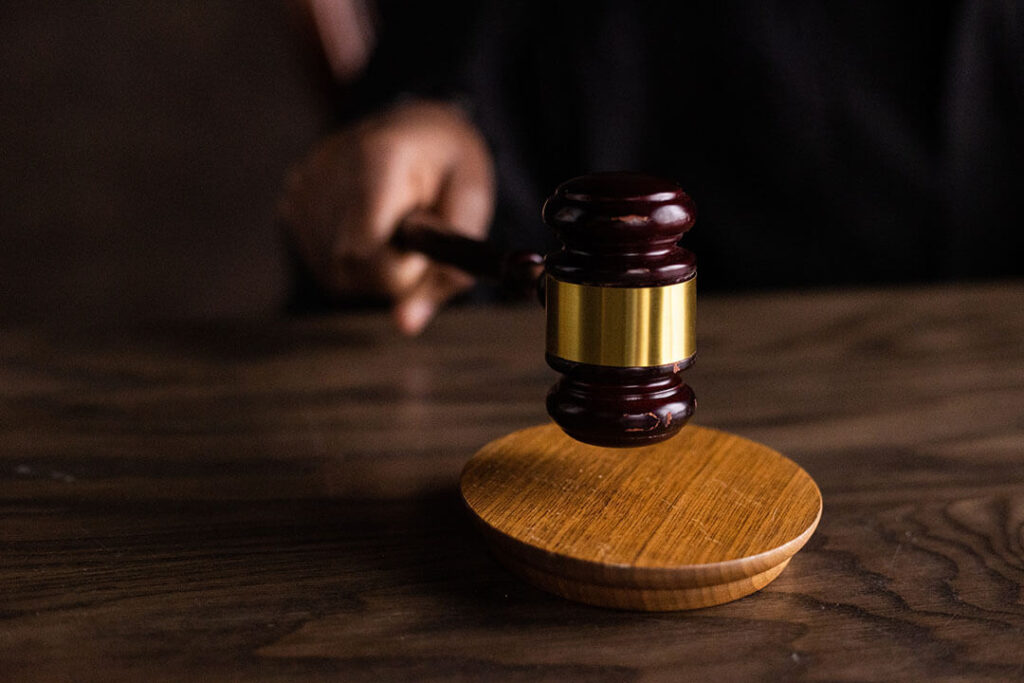
In the context of estate planning, the term “probate” frequently carries a negative connotation. In fact, financial planners advise many individuals, particularly those with valuable accounts and property, to try to avoid probate whenever possible.
However, the purpose of the probate system is ultimately to protect the deceased’s accounts and property, as well as their family, and in some instances it may even be advantageous. Consider briefly the advantages and disadvantages of probate.
The Pros
In certain instances, particularly when there is no will, the system ensures that all accounts and property are distributed in accordance with state law. Here are some potential benefits of involving the probate court in the administration of a deceased person’s estate:
- It provides a reliable procedure for the distribution of the deceased person’s property in the absence of a will.
- If a will exists, it validates and enforces the wishes of the deceased.
- It ensures that taxes and valid debts are paid so that the beneficiaries are not left with an uncertain feeling regarding the decedent’s affairs.
- If the deceased had debts or unpaid bills, probate provides a method for limiting the amount of time creditors have to file claims, which may result in debt discharge, reduction, or other advantageous settlement.
- Probate can be advantageous for the distribution of smaller estates where estate planning would have been too expensive.
- It allows for third-party oversight by a respected authority figure (judge or clerk), potentially reducing family conflicts and aiding in ensuring everyone’s best behavior.
The Cons
Although probate is intended to facilitate the transfer of accounts and property after a person’s death in a fair manner, consider bypassing the process for the following reasons:
- Generally speaking, probate is a matter of public record, meaning that certain documents, including personal family and financial information, become accessible to the public.
- There may be substantial costs, such as court fees, attorney’s fees, and executor fees, which are deducted from the value of the assets you intended to leave to your loved ones.
- Probate can be time-consuming, delaying the inheritance of your beneficiaries for months or even years.
- The probate process can be difficult and stressful for the executor and beneficiaries.
The Bottom Line
Probate is a default mechanism that ultimately enforces fair distribution of even small amounts of money and property, but it can be costly and time-consuming. For this reason, many individuals prefer to use strategies to avoid probate when they pass away.
A skilled estate planning attorney can devise a plan to help you avoid probate and make life easier for your heirs. Contact us today to schedule a consultation and receive more information about your options.

